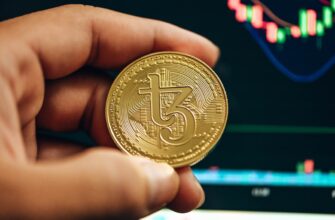With the explosive growth of digital assets, Muslim investors face new questions about fulfilling religious duties. Cryptocurrency zakat represents a critical intersection of modern finance and Islamic principles. This comprehensive guide clarifies how to calculate, pay, and approach zakat obligations on Bitcoin, Ethereum, and other digital currencies while adhering to Shariah compliance.
## Understanding Zakat: The Third Pillar of Islam
Zakat is a mandatory charitable contribution requiring Muslims to donate 2.5% of qualifying wealth annually. It purifies assets, supports community welfare, and maintains economic balance. Nisab—the minimum threshold—equals 85 grams of gold or 595 grams of silver’s value. Wealth must be held for one lunar year (Hawl) before zakat becomes due, targeting assets intended for growth rather than daily essentials.
## Cryptocurrency’s Emergence as Zakatable Wealth
As digital currencies gain mainstream adoption, Islamic scholars increasingly classify them as “mal-e-naami” (growing wealth), making them zakatable. Unlike fiat currency, cryptocurrencies function as decentralized stores of value and investment vehicles. Major fatwas from institutions like the Shariah Review Bureau and Accounting and Auditing Organization for Islamic Financial Institutions (AAOIFI) confirm cryptocurrencies meet zakat criteria when held as investments exceeding nisab.
## Calculating Zakat on Crypto Assets: A Step-by-Step Process
Determining your obligation involves these key steps:
1. **Annual Valuation Date**: Mark the Hijri calendar date when your crypto holdings first exceeded nisab
2. **Assess Total Portfolio**: Calculate the market value of ALL zakatable assets (crypto, cash, gold, stocks) on your due date
3. **Apply Nisab Threshold**: Verify your total wealth exceeds current gold/silver value (check live rates)
4. **Calculate 2.5%**: Multiply your crypto’s USD value by 0.025
5. **Deduct Liabilities**: Subtract immediate debts if they reduce your net wealth
*Example*: If your Bitcoin and Ethereum holdings equal $20,000 on your zakat date, you owe $500 (20,000 × 0.025).
## Optimal Timing for Cryptocurrency Zakat Payments
Zakat becomes obligatory when two conditions coincide:
– **Lunar Year Completion**: 354 days after your holdings surpassed nisab
– **Wealth Maintenance**: Assets remain above nisab throughout the year
Many scholars recommend paying during Ramadan for greater blessings. For volatile assets like crypto, use the market value on your exact due date—not the annual high or average. If holdings dip below nisab during the year, reset your Hawl calendar.
## Navigating Crypto Zakat Challenges
Unique aspects of digital assets create practical difficulties:
– **Volatility Concerns**: Values fluctuate dramatically—use real-time rates on your due date
– **Staking Rewards**: Treat staked coins as zakatable; rewards require payment upon receipt
– **Lost Keys/Assets**: Still owe zakat if you control the wallet, even if inaccessible
– **NFTs & Tokens**: Utility NFTs may be exempt; investment NFTs follow standard rules
– **DeFi Yield**: Generated income is zakatable immediately upon receipt
## Methods for Paying Cryptocurrency Zakat
Fulfill obligations through these Shariah-compliant approaches:
1. **Direct Crypto Transfer**: Donate coins to registered Islamic charities accepting crypto
2. **Convert to Fiat**: Sell crypto and distribute cash to verified beneficiaries
3. **Zakat Funds**: Contribute to specialized crypto zakat platforms like Finterra or IslamicCoin
4. **In-Kind Distribution**: Use crypto value to purchase essentials for recipients
Always verify recipient eligibility (must be among Quran-specified categories like the poor or debt-ridden) and retain transaction records.
## Cryptocurrency Zakat: Frequently Asked Questions
### Is cryptocurrency halal for zakat payment?
Yes, when transferred directly to qualified institutions or converted to fiat for distribution. Avoid charities engaging in non-Shariah activities.
### How do I value meme coins like Dogecoin for zakat?
Apply the same 2.5% rule to their market value on your due date. Treat all cryptocurrencies equally regardless of type.
### What if my crypto loses value after paying zakat?
Zakat obligations are based on the value at payment time. Subsequent price changes don’t require adjustments.
### Are mining rewards zakatable?
Yes—newly mined coins become zakatable upon receipt and must be included in your next annual calculation.
### Can I pay zakat in advance on expected crypto gains?
Scholars permit advance payments if you reasonably anticipate meeting nisab. Adjust later if projections change.
As cryptocurrency evolves, maintaining zakat compliance demonstrates faith in action. Consult qualified Islamic scholars for personal rulings, and leverage blockchain transparency to ensure accurate calculations. By integrating this pillar of Islam with modern assets, Muslims worldwide can harness technology for spiritual fulfillment and social impact.








